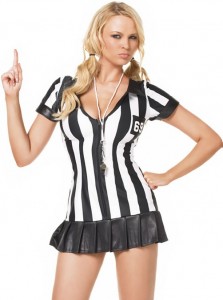







A site dedicated to discussion of these classic boats
9 Nov, 2011
Filed in: servicing, winterizing
 Winter haul out of the Seatoad went smoothly, thanks especially to my friend Dave who was in town for the weekend and helped out. Dave is a serious sailor…owns a 45 foot catamaran, the Luna Sea, which he and his lady Susan sail year round between Maine and the Caribbean. Dave is well-versed in all things nautical, including engines. In fact, when it comes to boats, I can say with confidence that Dave knows what he’s doing.
Winter haul out of the Seatoad went smoothly, thanks especially to my friend Dave who was in town for the weekend and helped out. Dave is a serious sailor…owns a 45 foot catamaran, the Luna Sea, which he and his lady Susan sail year round between Maine and the Caribbean. Dave is well-versed in all things nautical, including engines. In fact, when it comes to boats, I can say with confidence that Dave knows what he’s doing.
So I asked him about something I’ve been puzzling over recently …is there a real difference between the gear case oil they sell for cars (which goes for as cheap as $4 a quart) and the gear case oil they sell for outboards (which can go for as high as $9 for eight ounces–$36 a quart!). By gear case oil, I mean the lubricant that goes into your outboard’s lower unit. Depending on the brand it may be marketed as gear oil (or lube), lower unit oil (or lube), and a bunch of other names. (The various names, I suspect, are partly aimed at keeping you guessing.)
The standard viscosity for both auto and marine outboard gear case oil is the same…SAE 80W-90. So is there really a difference? Or is this just another case of boat owners getting ripped off?
Dave was refreshingly candid. Not missing a beat he said “Regular old gear oil is all I’ve ever used in my engines” (he has both outboards and inboards). “It’s the same stuff.”
But I’d heard that marine gear case oil was different: that it has additives to keep it low foaming–important to keep you from blowing a seal. And it’s tackier, so that any moisture finding its way into the unit can’t get between it and a metal surface, causing separation.
Dave shrugged. “Yeah, they might add a little anti-foaming agent, but a good oil shouldn’t be foaming anyway. Foaming is usually caused by water contamination not by some failure of the oil itself. And a lower unit is sealed. Keep the water out and you won’t have an issue. Get water in and no oil’s gonna make up for that.”
So after talking to Dave there was no way I was ever spending $9 for an eight ounce tube of Mercury Gear Lube again. But I also wasn’t quite ready to go with the very cheapest WalMart has to offer. So I compromised: Lucas Heavy Duty High Performance Gear Oil (Trans and Diff Lube), $8 a quart at Auto Zone. And to make me feel a little more comfortable with the choice, the back label states “Excellent for use in outboard final drives.”
Good enough for me. ![]()
A few loose notes…
You must be logged in to post a comment.
findre August 9, 2015
findre August 9, 2015
findre August 9, 2015
Lcolon7 June 23, 2015
MikeQ June 24, 2015